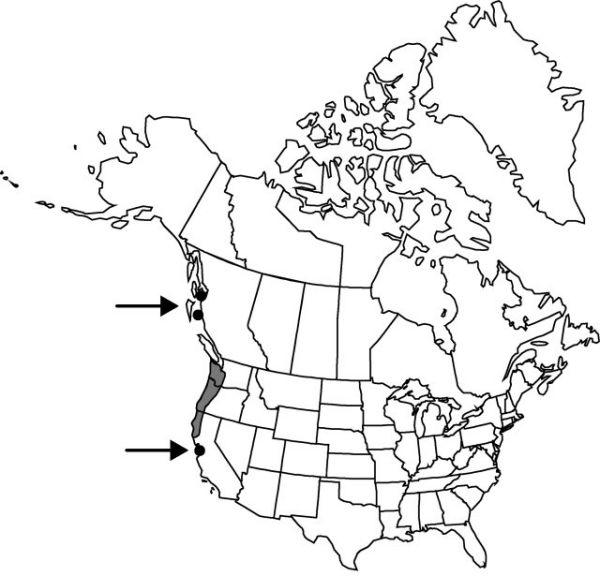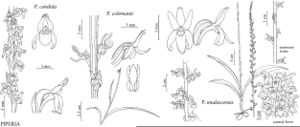Difference between revisions of "Piperia candida"
Lindleyana 5: 207, figs. 1H–N, 2. 1990.
FNA>Volume Importer |
FNA>Volume Importer |
||
| Line 32: | Line 32: | ||
-->{{#Taxon: | -->{{#Taxon: | ||
name=Piperia candida | name=Piperia candida | ||
| − | |||
|authority=Rand. Morgan & Ackerman | |authority=Rand. Morgan & Ackerman | ||
|rank=species | |rank=species | ||
| Line 47: | Line 46: | ||
|publication year=1990 | |publication year=1990 | ||
|special status= | |special status= | ||
| − | |source xml=https://jpend@bitbucket.org/aafc-mbb/fna-data-curation.git/src/ | + | |source xml=https://jpend@bitbucket.org/aafc-mbb/fna-data-curation.git/src/f50eec43f223ca0e34566be0b046453a0960e173/coarse_grained_fna_xml/V26/V26_1173.xml |
|subfamily=Orchidaceae subfam. Orchidoideae | |subfamily=Orchidaceae subfam. Orchidoideae | ||
|tribe=Orchidaceae tribe Orchideae | |tribe=Orchidaceae tribe Orchideae | ||
Revision as of 20:45, 16 December 2019
Plants 10–60 cm. Stems uniform toward base, 0.7–3.5 mm diam. distal to leaves; bracts 2–5(–10). Leaves prostrate to erect-spreading; blade 5–18 × 1.1–3.5 cm. Inflorescences sparsely flowered, ± secund, (2–)10–30 cm; rachis shorter than or equal to peduncle; bracts 3–10 mm. Flowers white, fragrance faint, harsh to honeylike; sepals oblong-elliptic, 1.8–3.5(–4.5) × 1–1.9 mm; dorsal sepal projecting to ± recurved; lateral sepals deflexed, ± twisted; petals usually projecting forward and ± connivent, white, midvein faintly green, asymmetrically lanceolate, 2–4 × 1 mm; lip recurved, triangular-ovate, (1.5–)2–3(–4 mm) × 1–2.8 mm; spur curved, tapered, 1.5–4 mm; viscidia broadly elliptic to ovate, 0.3–0.6 × 0.2–0.4 mm; rostellum ± elongate. Capsules 5–9 mm. Seeds cinnamon brown. 2n = 42.
Phenology: Flowering late spring–summer (May–Aug).
Habitat: Conifer and mixed evergreen forests, chaparral, sometimes on serpentine soils, not more than 150 km from coast
Elevation: 0–1500 m
Distribution

B.C., Alaska, Calif., Oreg., Wash.
Discussion
The flowers in Piperia candida are more completely white and more ephemeral than in any other member of the genus.
Selected References
None.
